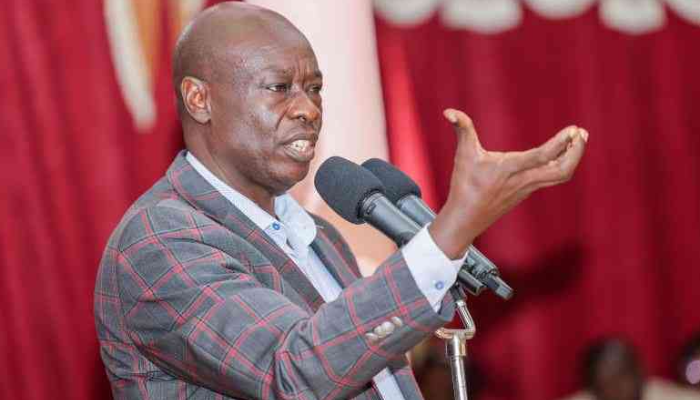
Deputy President Rigathi Gachagua has sparked political unrest with his recent remarks targeting former Interior Cabinet Secretary Fred Matiang’i, reviving old tensions and casting a shadow over the fragile truce between Kenya’s ruling party and the opposition.
Speaking during a public address in Nyamira County, Gachagua accused Matiang’i of “gross abuse of office” during his tenure under former President Uhuru Kenyatta. He further suggested that Matiang’i should be held accountable for alleged misuse of state security agencies during the 2022 general elections.
Gachagua’s speech drew swift backlash from Azimio la Umoja opposition leaders, who accused him of inflaming political hostilities at a time when the country should be healing. According to Senator Edwin Sifuna, “Dragging Matiang’i’s name into the mud again only serves to distract from Kenya Kwanza’s failure to deliver on its campaign promises.”
This political skirmish comes just days after President William Ruto expressed willingness to engage in structured dialogue with opposition leader Raila Odinga. Analysts warn that Gachagua’s remarks could stall progress in those negotiations, especially given Matiang’i’s influence in the former regime and his continued popularity in parts of Western and Nyanza regions.
Furthermore, Matiang’i, who has kept a low profile since leaving office, has reportedly been preparing legal defenses against potential charges. His allies view Gachagua’s statements as an orchestrated smear campaign aimed at silencing dissent and distracting from internal divisions within the Kenya Kwanza alliance.
Observers say the Deputy President’s remarks might also be a political strategy to solidify his grip on Mt. Kenya politics, where the Ruto-Gachagua power dynamics remain under scrutiny. Some Kenya Kwanza insiders believe Gachagua is trying to distance himself from corruption allegations and reposition himself as a champion of accountability.
In the wake of the controversy, civil society groups and religious leaders have urged the political class to steer the conversation back to economic recovery, job creation, and constitutional reforms. “We need leaders who build bridges, not burn them,” said Reverend Samuel Wekesa, a political commentator and clergy member.
